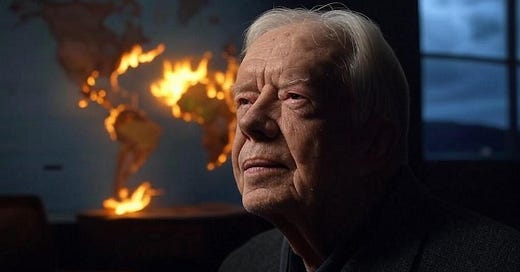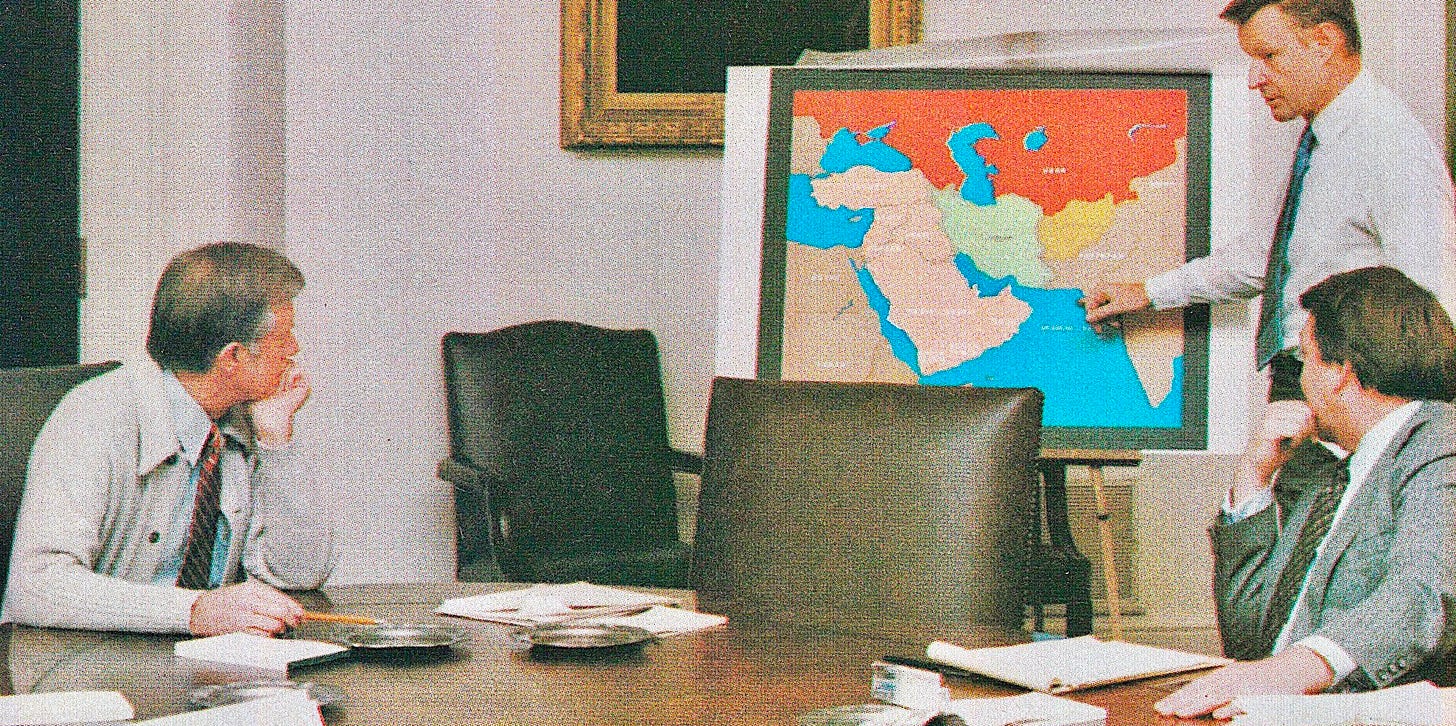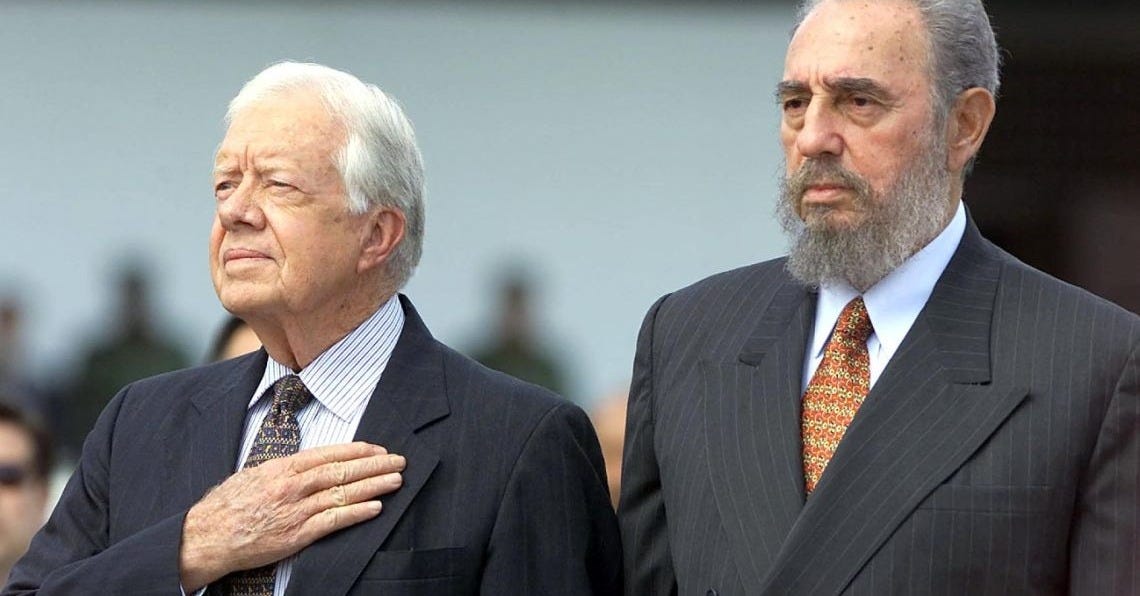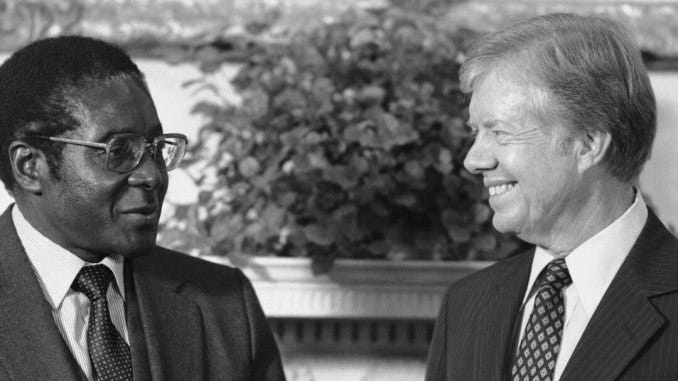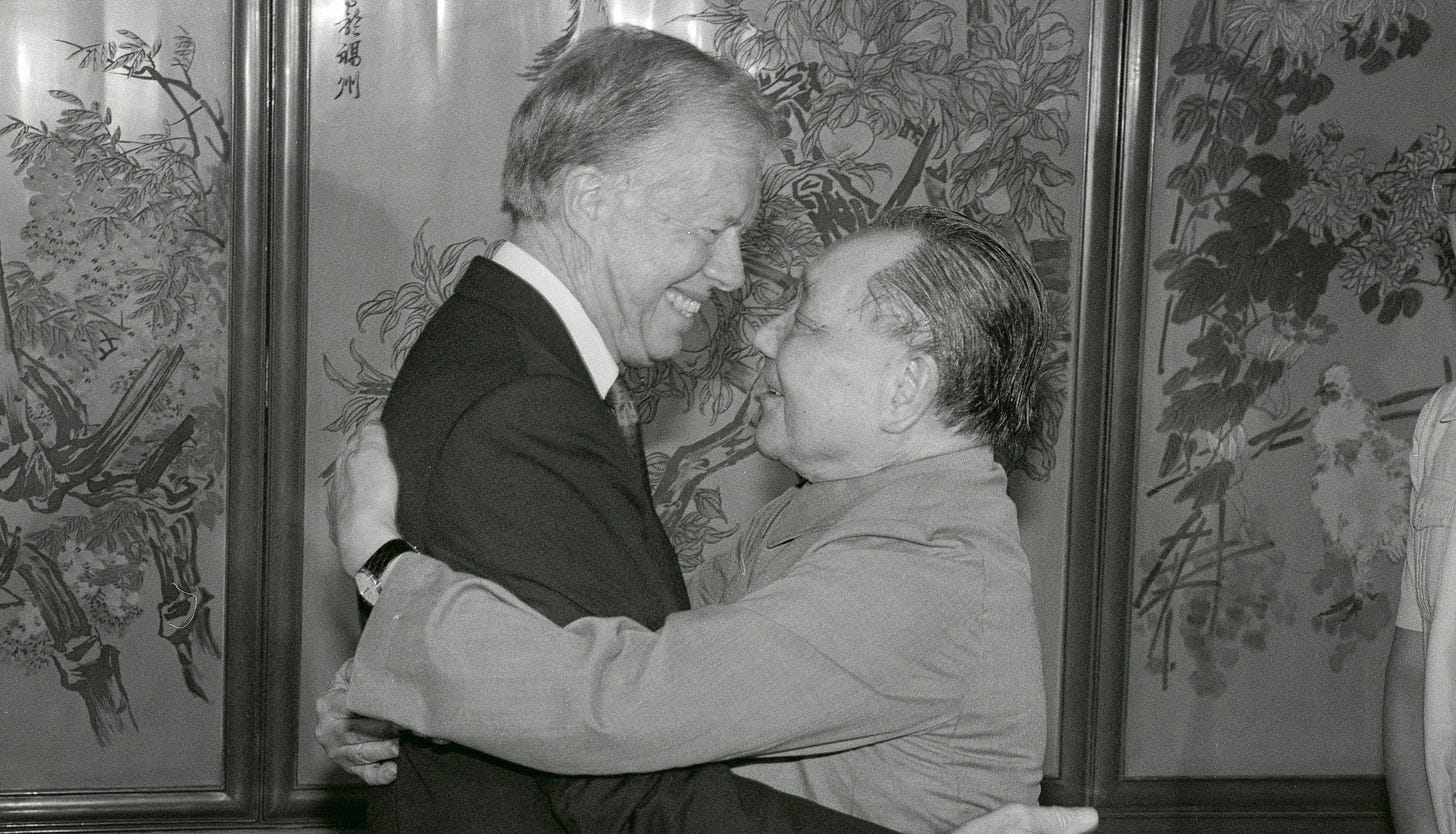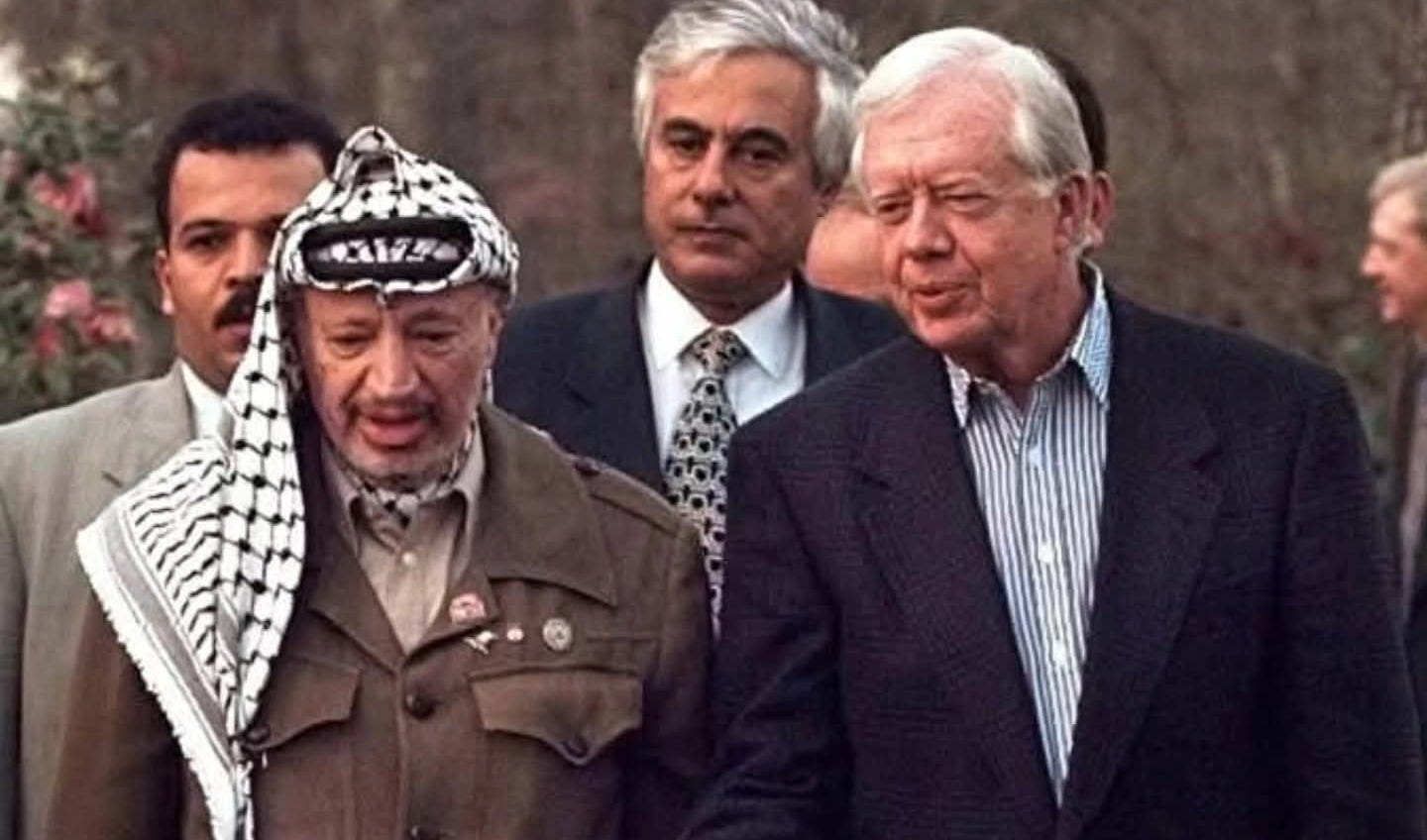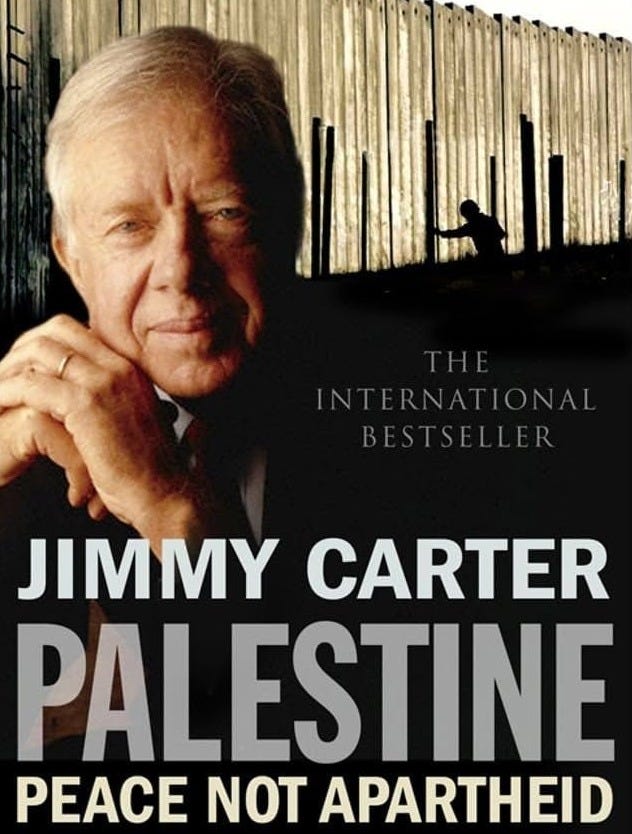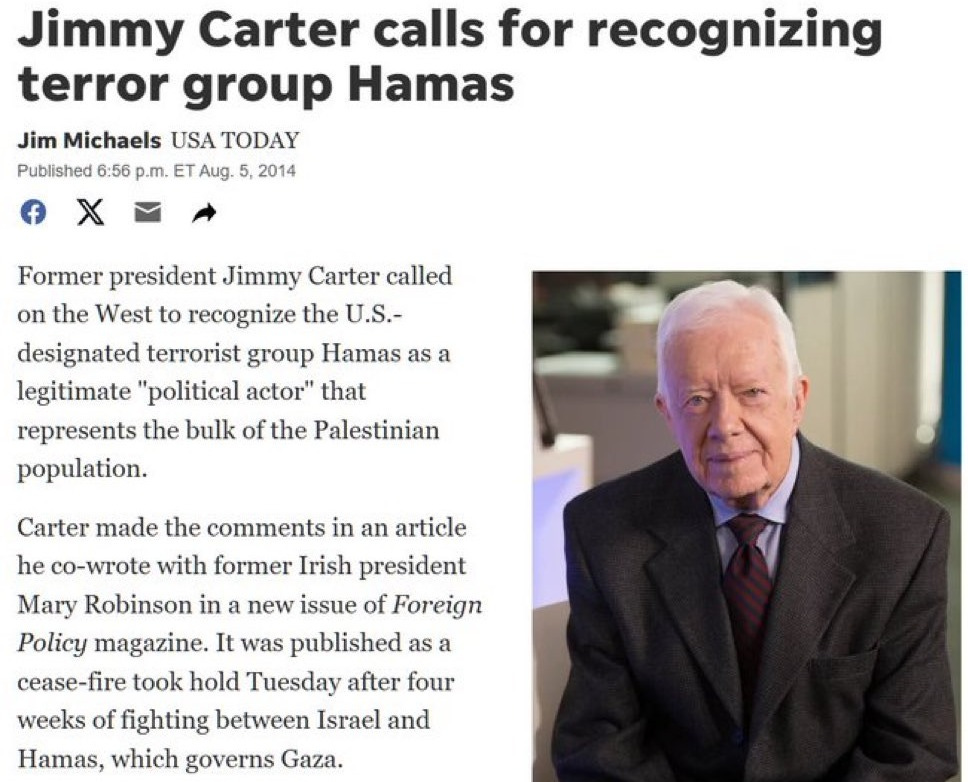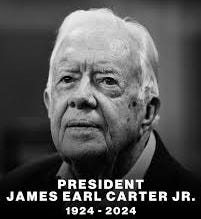The death of Jimmy Carter yesterday marks the end of a long life, but for many around the world, his passing serves as a grim reminder of the lasting destruction caused by his policies. While mainstream narratives often paint Carter as a "man of peace and humanitarian concern," the reality of his legacy is far darker. His actions during his presidency, and his post-presidency activism, have left behind a world in flames—more insecure, destabilized, and fractured. Carter's policies consistently empowered terrorism, weakened the United States' global standing, and emboldened adversaries, particularly in the Middle East, Africa, Latin America, and Asia. For many, his legacy is one of failure and support for America's enemies—one that should not be celebrated but scrutinized for the havoc it wrought.
Iran: A Gift to Extremism
Carter’s handling of Iran stands as one of the most catastrophic failures in modern foreign policy. His administration’s failure to support the Shah, despite growing opposition, directly enabled the rise of the radical Islamic Republic under Ayatollah Khomeini. By refusing to back the Shah during the revolution, Carter created a power vacuum that birthed one of the most dangerous regimes in history—one that has sponsored global terrorism and destabilized the Middle East.
The 1979 Iranian Revolution ushered in the era of the Islamic Republic and the hostage crisis, with 52 American diplomats held captive for 444 days. Carter’s failure to respond effectively to this crisis, coupled with his refusal to recognize the growing radical Islamic threat in Tehran, exposed his catastrophic weakness on the world stage. The reverberations of this disastrous failure are still felt today, with Iran remaining a state sponsor of terrorism, a nuclear menace, and a destabilizing force in the region.
Afghanistan: Empowering Extremists
Carter’s decision to support the Afghan mujahideen in the 1980s, meant to counter the Soviet invasion, stands as one of the most reckless and disastrous foreign policy decisions in modern history. While the Soviet Union was bogged down in Afghanistan, Carter’s administration unknowingly laid the groundwork for global terrorism by arming and funding extremist factions like al-Qaeda. What Carter failed to recognize was that the very groups he supported would later evolve into the deadly forces responsible for spreading terrorism worldwide.
Rather than fostering stability, Carter’s misguided support for the mujahideen empowered militant ideologies that would fuel decades of violence and instability. The weapons and training provided by the U.S. became the tools of destruction used by the same jihadist groups that orchestrated the 9/11 attacks and continue to wreak havoc today. Carter’s actions left a world where terrorism was not only fostered, but encouraged—a legacy of failure that has shaped global insecurity ever since.
Latin America: A Path to Authoritarianism
Carter’s policies in Latin America represent a catastrophic failure in foreign diplomacy that severely undermined U.S. influence and stability in the region. His misguided focus on human rights, disconnected from the Cold War realities, created a power vacuum that allowed authoritarian regimes to rise, fueling chaos and instability. By withdrawing support from the Somoza regime in Nicaragua, Carter handed the country over to the Marxist Sandinistas, who, with Soviet and Cuban backing, established a brutal dictatorship. This decision plunged Nicaragua into a civil war and prolonged suffering, leaving a legacy of turmoil.
In El Salvador and Guatemala, Carter’s refusal to support traditional allies in the fight against Soviet-backed guerrillas further destabilized the region. His lack of strategic foresight enabled greater Soviet and Cuban intervention, contributing directly to the rise of brutal, communist regimes. Carter’s failure to comprehend the complexities of Cold War geopolitics in Latin America left the region vulnerable to authoritarianism and violence, with lasting consequences that continue to affect the Americas today.
Africa: A Failure of Moral Leadership
Carter’s approach to Africa was marked by moral grandstanding but a complete lack of understanding of the region’s complex political realities, resulting in disastrous consequences. While he publicly condemned apartheid in South Africa, his administration failed to take any meaningful action to dismantle the brutal regime, leaving it largely unchallenged throughout his presidency. This inaction allowed apartheid to persist, exacerbating the suffering of millions while undermining U.S. credibility on the global stage.
Even more damaging was Carter’s misguided support for Robert Mugabe in Zimbabwe. Carter’s early embrace of Mugabe, despite his authoritarian rule and brutal tactics, exposed a dangerous willingness to prioritize idealistic human rights rhetoric over practical realities. Mugabe’s policies eventually led to economic collapse and widespread political repression, but Carter’s ill-conceived endorsement enabled the rise of one of Africa’s most despotic regimes. In Africa, Carter’s legacy is one of moral inconsistency, missed opportunities, and policies that, instead of promoting progress, empowered the very forces he claimed to oppose.
Empowering China's Rise
Jimmy Carter's approach toward China during his presidency was a disastrous blend of appeasement and naivety, leaving a legacy of unchallenged authoritarianism. His 1979 decision to recognize the People's Republic of China and sever official ties with Taiwan was sold as a step toward normalizing relations with a rising communist power. However, this move ignored the brutal reality of China’s human rights abuses and oppressive regime.
Carter’s failure to confront China, especially in the wake of the 1989 Tiananmen Square massacre, demonstrated a disturbing lack of moral clarity and accountability. His soft approach allowed China to grow in strength without facing the scrutiny or pressure it desperately needed. By failing to impose any meaningful checks on China’s authoritarianism, Carter inadvertently paved the way for Beijing’s unchecked global rise. Today, the consequences of his policies are starkly evident in China’s aggressive expansionism, military buildup, and growing role in destabilizing international relations. Carter’s legacy is one of enabling a regime that has become one of the greatest threats to global security and human rights.
The Middle East: Hostility Toward Israel and Empowering Terrorism
Carter's relationship with Israel is one of the most damaging aspects of his legacy. Throughout his presidency, despite Israel’s existential threats, he pressured the Jewish state to make concessions without regard for its security needs. The Camp David Accords, hailed as a diplomatic breakthrough, forced Israel to make significant sacrifices in exchange for peace with Egypt. However, this agreement resulted in what has been called a "cold peace" at best, with Israel’s security concerns dismissed. Carter’s insistence on these concessions set a dangerous precedent for future U.S. diplomacy in the Middle East.
Carter’s post-presidency activism further revealed his deepening hostility toward Israel. In his 2006 book Palestine: Peace Not Apartheid, Carter falsely accused Israel of apartheid, ignoring the context of Palestinian terrorism, which he failed to condemn. His false moral equivalence between Israel and terrorist groups played directly into the hands of those seeking to delegitimize the Jewish state. Worse still, his engagement with Hamas in 2008—legitimizing a genocidal organization bent on Israel’s destruction—undermined global efforts to isolate terrorism and protect Israel.
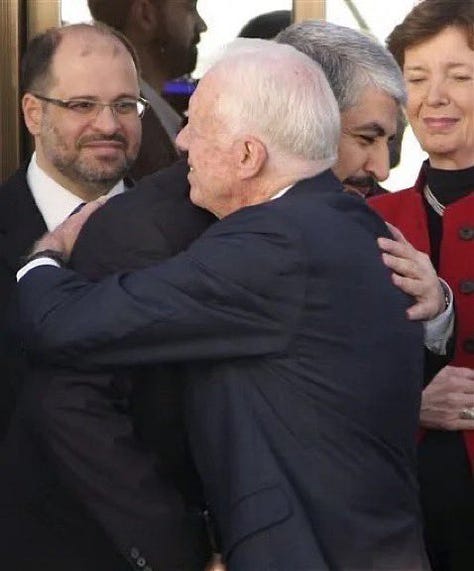
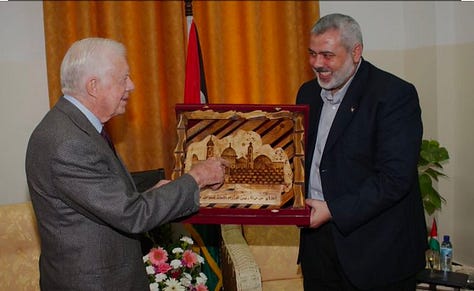

Carter’s support for movements like BDS and his meetings with Hamas continued to tarnish his reputation as a moral authority. His death marks the passing of a man whose foreign policies, especially concerning Israel, left a trail of harm, significantly weakening both U.S. influence and international stability. For many, his legacy is one of misguided activism that had disastrous and lasting consequences.
A Legacy Not to Be Cherished
Jimmy Carter’s death is a reminder that for many around the world, his legacy is not one of peace or progress. Instead, it is a legacy of failed policies, emboldened adversaries, and weakened alliances. His decisions in the Middle East, Latin America, and Africa helped shape a world far less secure than when he took office. His refusal to recognize the dangers posed by radical groups, his misguided moralism, and his weakening of U.S. influence left a trail of instability that continues to affect global politics.
As history looks back on Carter’s time in office and his years following it, it’s clear that his legacy is far from cherished. It is a legacy of failed diplomacy, poor judgment, and a consistent tendency to undermine U.S. allies while appeasing those who seek to destabilize the world, contributing to leaving a world in flames behind.

